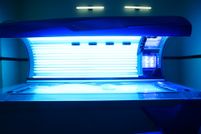How Does UV Light Purify the Air?

When we think of air pollution, we often think of outside sources, such as car exhausts and factories. However, pollutants can also affect indoor air quality from within the home. These sources include fuel-burning appliances, tobacco products, and newly installed flooring and upholsteries. Luckily, modern science has created innovative technologies, including UV light air purifiers, to combat indoor air pollution. Here’s a closer look at how ultraviolet light helps.
What Is UV Light?
Ultraviolet (UV) light is responsible for your summer tan and the glow you see in blacklight posters. It’s a type of electromagnetic radiation that falls between visible light and X-rays. UV light is invisible to the human eye, but it may cause some materials to fluoresce.
 It can be divided into three categories. The most common, UVA, is used in tanning beds. Meanwhile, UVB damages our epidermis and causes sunburns. The last, UVC, is harmful to bacterial organisms and can destroy nucleic acids and disrupt their DNA.
It can be divided into three categories. The most common, UVA, is used in tanning beds. Meanwhile, UVB damages our epidermis and causes sunburns. The last, UVC, is harmful to bacterial organisms and can destroy nucleic acids and disrupt their DNA.
Although blocked by the earth's atmosphere, UVC can be made artificially. When used appropriately, it can purify the air.
How Does UV Light Improve Indoor Air Quality?
When air passes through a purifier, it enters a small internal chamber where it’s exposed to UV light. UVC then kills the pathogens in the air—such as bacteria and mold spores—thus improving indoor air quality.
In some models, the air may go through another filter before it’s released. The UV light is not emitted into the room, so these purifiers are safe to use at home.
If you’re looking for UV light products to enhance your indoor air quality, check out the finest solutions from Richmond Hill Air Conditioning. For over 30 years, they’ve been delivering reliable AC repair and installation, allergy filtration, and preventive maintenance programs to clients in Richmond Hill, GA, and the surrounding areas. Speak with their specialists today by filling out the contact form on their website or calling (912) 756-2288.
About the Business
Have a question? Ask the experts!
Send your question

